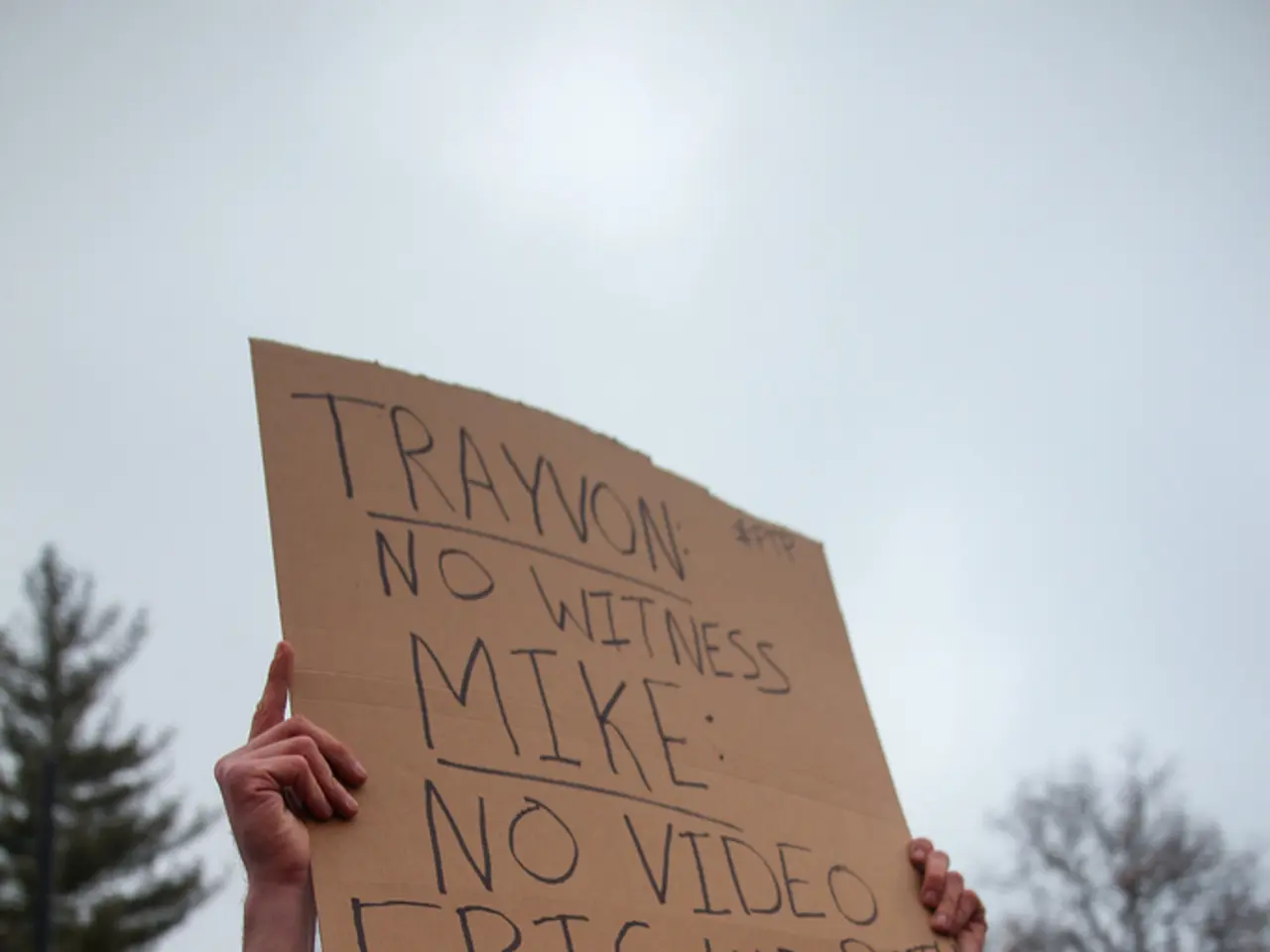Battle for safeguarding the Constitution, according to Rahul Gandhi, as police prevents MPs from approaching Election Commission
Controversy Surrounds Bihar's Special Intensive Revision (SIR) of Electoral Rolls
The Special Intensive Revision (SIR) process, a comprehensive voter verification exercise in Bihar, has sparked controversy and legal challenges due to concerns about potential mass disenfranchisement. Initiated by the Election Commission of India (ECI) in June 2025, the SIR aims to ensure the accuracy and integrity of the electoral rolls by addressing issues of outdated, duplicated, or erroneous entries.
The SIR, which involves house-to-house enumeration without relying on existing electoral rolls, aims to include all eligible voters and exclude ineligible or duplicate entries. The process started with distributing enumeration forms to about 8 crore voters and is scheduled to conclude with a final revised electoral roll by September 30, 2025.
However, the SIR has generated significant controversy due to concerns about potential voter exclusion. Critics and opposition parties fear that the conditions could disproportionately exclude vulnerable groups such as women, religious minorities, internal migrants, and economically marginalized communities from the voter list, potentially skewing electoral outcomes in favor of the ruling NDA alliance.
Key points of contention include the exclusion of common identity proofs like Aadhaar, voter ID card, and ration cards from the accepted documents, making it challenging for many voters to be included in the rolls. Additionally, the large population of internal migrants in Bihar, who work or study in other parts of India, face challenges in meeting document submission or enumeration requirements within the specified deadlines.
The Election Commission denies allegations of bias and maintains the process is lawful and aimed at improving electoral integrity. The Commission has stated that no formal claims or objections have been submitted by any political party regarding the SIR process. The ECI also reiterated its refusal to release a digital, machine-readable version of the voter list.
The controversy has prompted ongoing judicial scrutiny and political debate over its fairness and impact on democratic participation in Bihar. The Supreme Court of India is actively hearing petitions challenging the SIR, particularly regarding the documents accepted and the cutoff date of January 1, 2003, for inclusion in the rolls. The Court has asked the ECI to clarify details of the 2003 electoral roll revision for comparison and justification.
Recently, over 300 MPs marched to the Election Commission of India office in protest against the SIR of electoral rolls in poll-bound Bihar. The protesting MPs, including Rahul Gandhi, Priyanka Gandhi Vadra, Sanjay Raut, and Sagarika Ghose, were detained by Delhi Police. If the MPs decide to proceed, they will be facilitated to the Election Commission Office.
The controversy over voter list deletions during the Bihar SIR process has deepened, with reports of large-scale deletions, particularly among minorities and migrant workers. The ECI has told the Supreme Court that it cannot share the names of the 65 lakh electors removed from Bihar's draft rolls, nor provide reasons for their exclusion at this stage. The ECI also stated that neither the law nor the guidelines provide for preparation or sharing of any such list of previously enrolled voters whose enumeration forms were not received during the process.
Under the rules, claims and objections can only be resolved after seven days, once eligibility documents have been verified by the Electoral Registration Officer (ERO) or Assistant ERO. A total of 8,341 claims and objections were submitted directly by electors, but none have been disposed of yet.
The opposition parties have accused the Election Commission of India of irregularities in the SIR process and have vowed to continue their fight to save the Constitution and ensure One Man, One Vote. The controversy surrounding the SIR process in Bihar continues to be a significant topic of debate and concern in the lead-up to the upcoming state assembly elections.
- The controversy surrounding the Special Intensive Revision (SIR) process in Bihar has extended to the realm of finance, as a lack of transparency in the electoral roll verification exercise has sparked concerns among investors about the state's political stability and potential impacts on economic growth.
- The debate over the SIR, which includes claims of potential voter exclusion against vulnerable groups, has moved beyond the realm of general-news and politics, spilling over into the world of Defi, with some arguing that the outcome of the process could have significant implications for the democratic decentralization and financial sovereignty of the marginalized communities.
- The ongoing legal challenges and political debate over the SIR process have attracted the attention of the criminal justice system, as allegations of irregularities and potential voter manipulation have prompted calls for investigations into possible election fraud and abuse of power.







